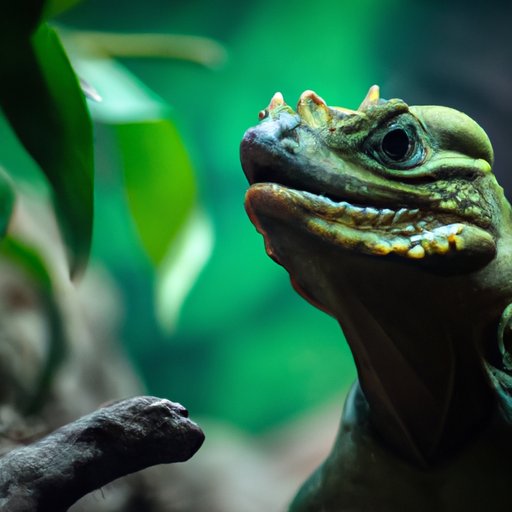I. Introduction
Despite their prevalence in the animal kingdom, many people are still confused about what exactly constitutes a vertebrate. This article aims to provide a clear and comprehensive overview of vertebrates, their characteristics, and their importance in the ecosystem.
II. Back to Biology Basics: Understanding Vertebrates
Before diving into the specifics of vertebrates, it’s important to understand some basic biology concepts, such as animal phyla and taxonomy. Vertebrates belong to the subphylum Vertebrata within the phylum Chordata.
Chordates share several defining characteristics, including a dorsal hollow nerve cord, pharyngeal slits, and a notochord. Vertebrates, in particular, are characterized by the presence of a spinal column or backbone.
III. What are Vertebrates and Why Do They Matter?
Vertebrates play a crucial role in the ecology of our planet. They occupy various niches within food webs, and their presence or absence can have a significant impact on overall biodiversity. Additionally, many vertebrates are directly or indirectly important to human societies, whether as sources of food or as subjects of scientific research.
However, human activities such as habitat destruction, climate change, and overfishing pose a significant threat to vertebrate populations. Understanding the importance of vertebrates can help inform conservation efforts and promote sustainability.
IV. A Closer Look at Vertebrates: The Building Blocks of the Animal Kingdom
What exactly sets vertebrates apart from other animals? The most obvious distinguishing feature is their skeletal system, which includes a spine, skull, and ribcage. Vertebrates are also characterized by their bilateral symmetry, well-developed nervous system, and closed circulatory system.
A typical vertebrate body is divided into distinct regions, including the head, trunk, and tail. These regions house various organs and organ systems, including the brain, heart, and digestive system.
V. From Fish to Humans: How Vertebrates Evolved Over Time
The evolution of vertebrates is a complex and fascinating subject. The earliest known vertebrates were fish-like creatures that lived over 500 million years ago. Over time, vertebrates evolved a variety of specialized adaptations, including limbs for locomotion, advanced sensory organs, and complex social behaviors.
Understanding the evolution of vertebrates can help us better understand modern-day biodiversity and inform conservation efforts aimed at preserving endangered species.
VI. Exploring the Characteristics of Vertebrates and Their Importance in the Ecosystem
Vertebrates are found in almost every ecosystem on Earth, from the depths of the ocean to the tops of mountains. They play a crucial role in maintaining ecological balance and contributing to biodiversity. For example, many vertebrates are apex predators, keeping smaller populations in check and preventing overgrazing or overpopulation.
However, human activities such as deforestation, pollution, and overfishing have had a significant impact on vertebrate populations. Addressing these issues requires a deeper understanding of vertebrate ecology and the factors that contribute to their survival.
VII. The Diversity of Vertebrates: An In-Depth Examination of Animal Classification
Vertebrates are divided into several broad categories based on shared characteristics. These categories include fish, amphibians, reptiles, birds, and mammals. Each group has its own set of unique adaptations and behaviors, making them well-suited to their particular environment.
Within each group, there is a tremendous amount of diversity. Fish, for example, include everything from tiny minnows to massive sharks, each with their own unique physical and behavioral characteristics.
VIII. Conclusion
Overall, understanding vertebrates and their role in the ecosystem is crucial for promoting sustainability and biodiversity on our planet. By taking steps to protect endangered species and reduce our impact on the environment, we can ensure a bright future for the many fascinating and important vertebrates that call our planet home.
Let’s not wait until it’s too late to act.
